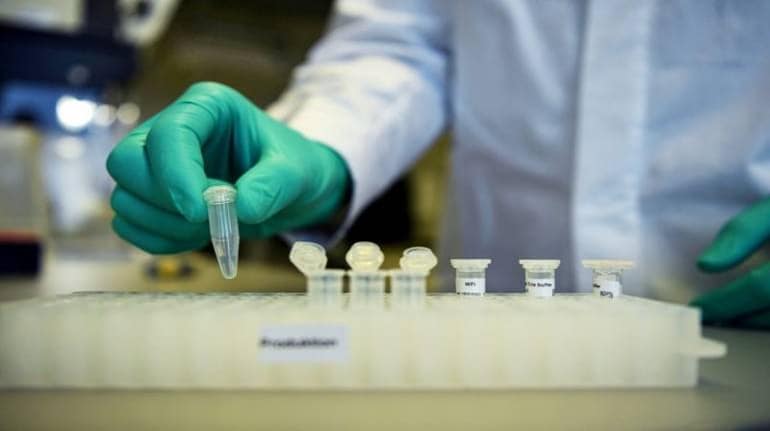



India has become the latest country to report cases of new COVID-19 strain of that was first reported in the UK. The strain has tempered coronavirus vaccine optimism as experts believe that the mutant virus is potentially more transmissible.
The strain has already reached a number of countries, including Italy, Sweden, France, Spain, Switzerland, Germany, Canada, Japan, prompting more than 50 countries, including India, to impose travel restrictions on the UK.
Explained: Are new coronavirus strains cause for concern?
The Health Ministry on December 29 said that six UK returnees tested positive for the new UK variant genome. Three samples in NIMHANS of Bengaluru, 2 in CCMB, Hyderabad and 1 in NIV, Pune tested positive for the new variant.
Does it spread more easily? Make people sicker? Treatments and vaccines won’t work? Questions are multiplying as fast as new strain of the coronavirus. Here’s what we know about the new coronavirus variant:
What is this new COVID strain?The new variant, which scientists have named “VUI – 202012/01” includes a genetic mutation in the “spike” protein that the SARS-CoV-2 coronavirus uses to infect human cells.
The strain is also concerning because it has many mutations — nearly two dozen — and some are on the spiky protein that the virus uses to attach to and infect cells. That spike is what current vaccines target.
Health experts in the UK and US believe that the strain seems to infect more easily than others. According to one British study, the strain is 50 percent to 74 percent more contagious.
British Prime Minister Boris Johnson had also said that the new viral strain "may be up to 70 percent more transmissible than the original version of the disease".
What is different about this new version of SARS-CoV-2? Samples of the new virus isolated from patients suggest that this variant has been increasing in relative frequency over the past three months.
The increase in frequency is concerning, as it suggests – but does not prove – that the B.1.1.7 isolates of SARS-CoV-2 are more transmissible than the original virus.
Is it more dangerous? If so, why? If the new version is indeed more transmissible than the old COVID-19 virus, it will be more dangerous as it will make more people sick. However, little is know about the severity of disease caused by the new version of this virus compared with the older one.
Where did this new strain come from? New variants have been seen almost since the virus was first detected in China nearly a year ago. Viruses often mutate, or develop small changes, as they reproduce and move through a population — something “that’s natural and expected,” WHO earlier said in a statement.
Will the COVID-19 vaccines still be effective against this new strain European Union experts believe that the current vaccines against COVID-19 will be effective against the new strain of the virus detected in Britain and elsewhere. European Medicines Agency had said, "At the moment there is no evidence to suggest" that the Pfizer-BioNTech vaccine "is not effective against the new variant".
Chiefs of BioNTech and AstraZeneca have also said that it is likely that their company's vaccine will be effective against the new virus.
Co-director of the German laboratory BioNTech, Ugur Sahin, said it was "highly likely" that its vaccine against the coronavirus works against the mutated strain detected in Britain, but it could also adapt the vaccine if necessary in six weeks.
"Scientifically, it is highly likely that the immune response by this vaccine also can deal with the new virus variant," said Ugur Sahin.
Explained: Why the UK’s mutated coronavirus strain may not be an immediate threat to vaccines
But if needed, he added, "in principle, the beauty of the messenger technology is that we can directly start to engineer a vaccine which completely mimics this new mutation -- we could be able to provide a new vaccine technically within six weeks."
AstraZeneca CEO Pascal Soriot had told The Sunday Times newspaper that he was confident the vaccine would work against the new strain and would prove as effective as its rivals. “We think we have figured out the winning formula and how to get efficacy that, after two doses, is up there with everybody else,” Soriot said.
Are the current vaccines less effective against the new strain? Pfizer and Moderna vaccines work by training our immune systems to recognize a specific version of the viral spike protein. The version of the spike protein used by the vaccines was designed to match that of the old virus. This could mean that the vaccines might become less effective than expected, should this new virus spread widely.
The question is therefore not whether the vaccines will be effective, but rather how much effective they will be.
What can we do to reduce the risk of contracting new COVID-19 virus? So far there is no evidence to suggest that the new strain spreads differently than the old virus. People should follow the regular COVID-19 protocol such as wearing a mask, washing hands often, maintaining social distance and avoiding crowded public places.
WHO’s director-general, Dr Tedros Adhanom Ghebreyesus said, “The bottom line is we need to suppress transmission of all virus strains that can cause COVID-19. The more we allow it to spread, the more mutations will happen.”
Click here for Moneycontrol's full coverage of the COVID-19 outbreak
Discover the latest Business News, Sensex, and Nifty updates. Obtain Personal Finance insights, tax queries, and expert opinions on Moneycontrol or download the Moneycontrol App to stay updated!
Find the best of Al News in one place, specially curated for you every weekend.
Stay on top of the latest tech trends and biggest startup news.